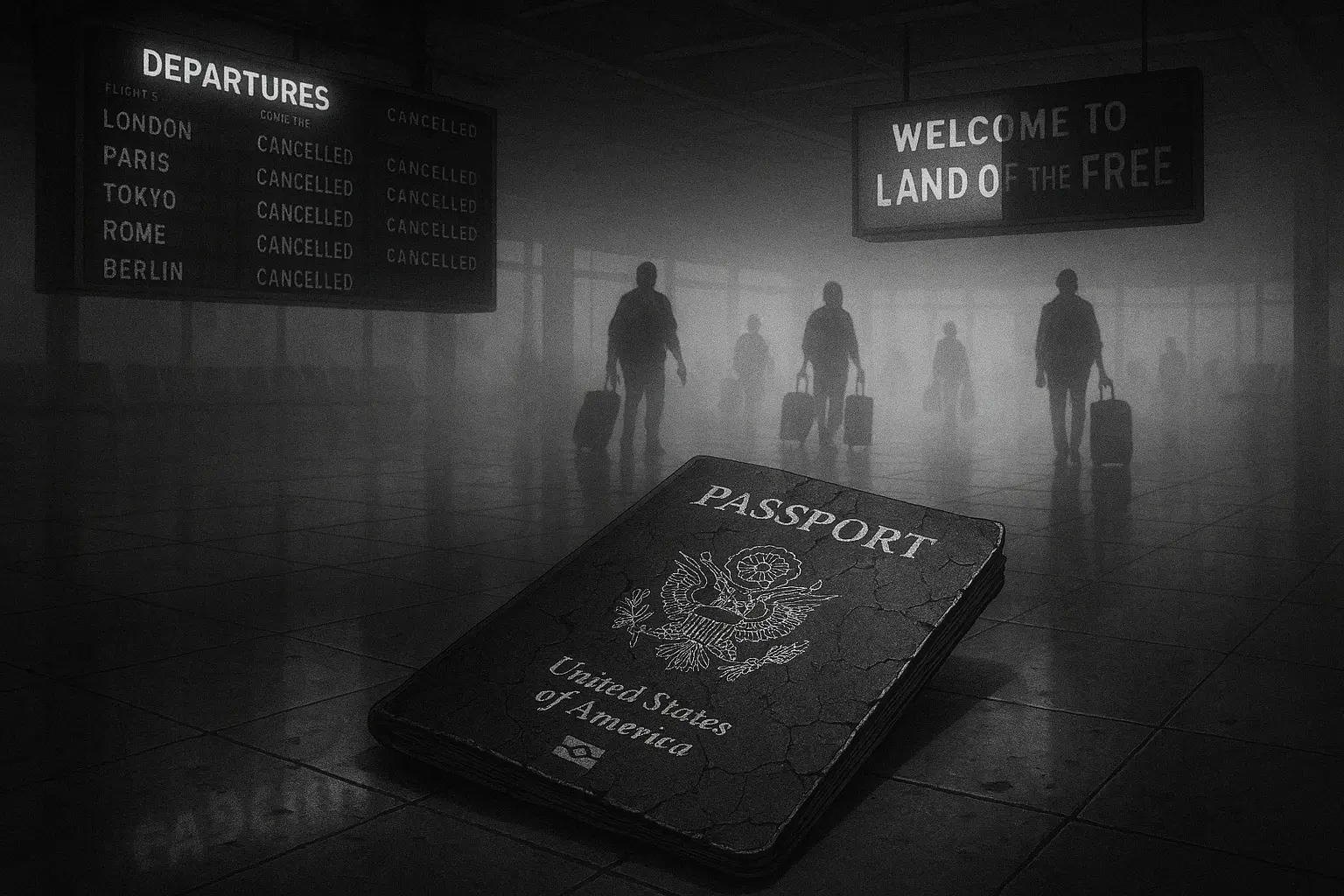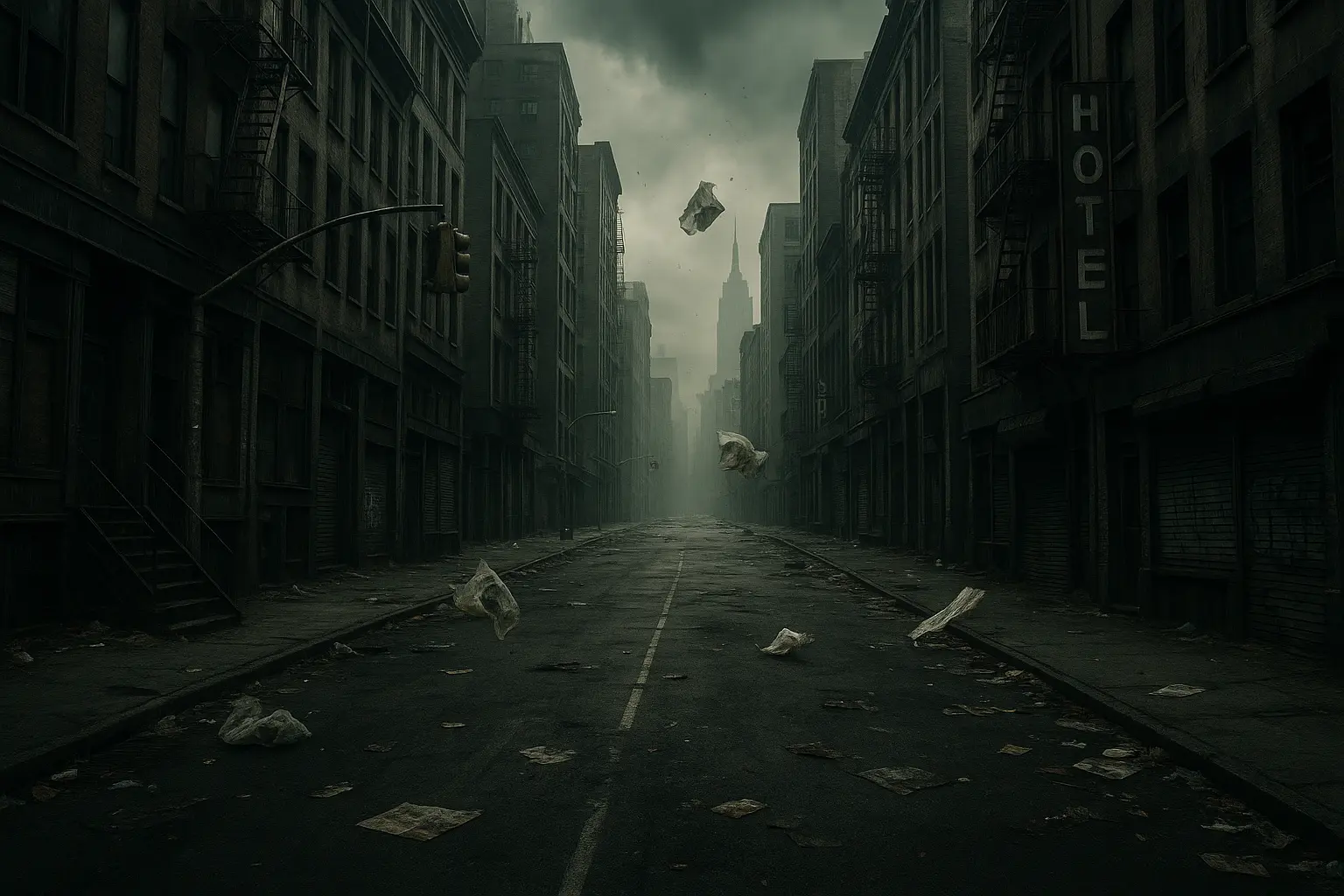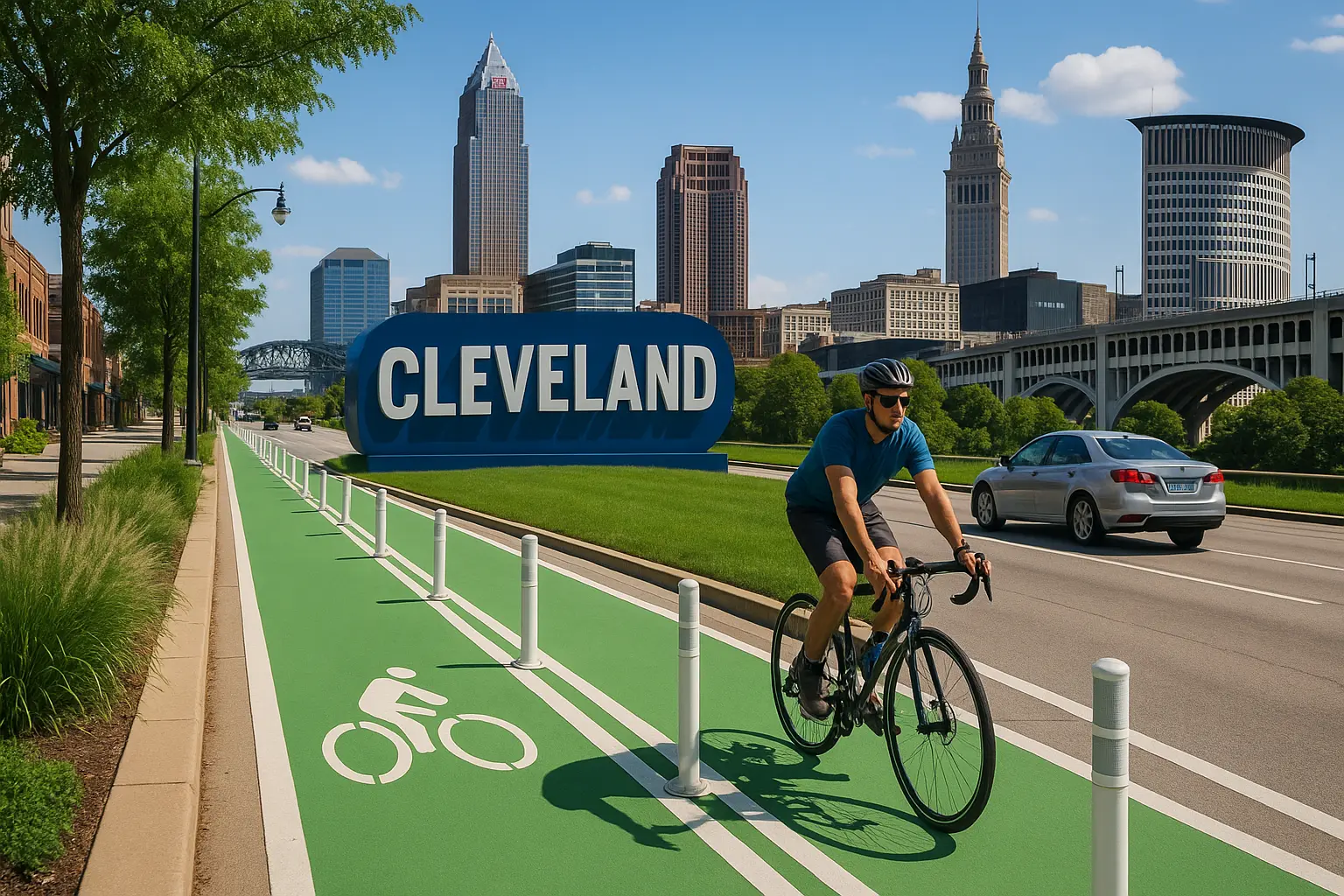What Happens to a Country Without Visitors?
There’s a point where you stop looking at a country through a political lens and start seeing it through a logistical one. Where the red vs. blue theatrics dissolve — and what’s left is just rust, vacancy, and silence.
I’m talking about tourism. But not just vacations. I’m talking about connection. Visibility. Trust. Soft power. All the intangible lifelines that keep a nation in dialogue with the rest of the world.
And what happens when that dies?
Right now, it feels like America is pushing everyone away. Not metaphorically — literally. From visa purges and arbitrary detentions to this week’s unthinkable idea: sending U.S. citizens to foreign prisons. We laughed at first. Then we realized they weren’t joking.
So here’s the thought experiment:
What happens to a country that still prints passports, but no one wants to visit?
Let’s look at some numbers.
📉 In 2019, the U.S. welcomed nearly 80 million international visitors. That dropped during COVID (unsurprisingly), but in 2023, it still hadn’t recovered. Now — with rising hostility, politicized immigration enforcement, and a total collapse in global trust — tourism is slowing not because of the pandemic…
But because people are scared.
Not just scared of mass shootings.
Not just scared of inflation or street crime.
But scared of being misunderstood at the border.
Scared that their phone might contain the wrong meme.
Scared that their visa could be revoked without cause.
Scared that a layover could become a permanent detention.
This isn’t sci-fi. Civil rights lawyers are being detained at airports. Journalists are being harassed. Even American citizens are unsure what rights they’ll have on landing.
And tourists? They’re going elsewhere.
Now, compare that to Iran. Yes, Iran — a sanctioned, semi-isolated theocracy. In 2019, it received around 8.7 million tourists. But over 60% of those visitors were from neighboring countries. Western tourism was (and still is) minimal.
And yet — it’s consistent. Predictable. People know the rules, even if they disagree with them. There’s a strange sort of stability in that.
But the U.S. today? Feels like a trapdoor.
Route 66.
Grand Canyon.
New Orleans jazz, Death Valley silence, Redwood canopies.
That dream road trip… it’s fading. Not because the landscape changed. But because the vibe did.
And when that vibe breaks, so does the economy.
Tourism isn’t just souvenir shops and airport pickups. It’s an ecosystem. If U.S. tourism falls from 80 million international visitors to even just 10 million — which is not far-fetched — the effects would be massive.
According to the U.S. Travel Association, over 16 million American jobs are directly tied to travel and tourism. Indirectly? 30 to 50 million U.S. jobs are affected — across airlines, logistics, manufacturing, rental services, food, entertainment, media, maintenance, even agriculture.
No flights means no new planes. No international travel means no hotel chains, no car rentals, no casinos, no airports, no catering gigs. The whole structure collapses inward.
And the damage won’t show up on cable news until it’s irreversible.
This is the Iran-effect. Not in religion or culture — but in perception.
When the world stops trusting your borders, when your policies send a signal of instability and fear, people don’t argue. They just cross you off the map. Quietly. Permanently.
So no, this isn’t about MAGA vs. woke. This isn’t even about Trump vs. Biden anymore.
This is about what happens when a country becomes unvisitable.
Not because of geography.
But because of fear.
And fear, once embedded, doesn’t just fade when the president changes. It lingers. It festers. It writes itself into travel advisories and booking algorithms and group chats.
The world is watching.
The tourists are pausing.
And America — land of the free, home of the brave —
Is about to learn what it means to be alone.
Read next: SignalGate and the Quiet Collapse of Trust: How a Group Chat Shook the U.S. Intelligence Order — no one has yet taken responsibility.
A speculative exposé — grounded in fact, driven by concern.







Post Comment